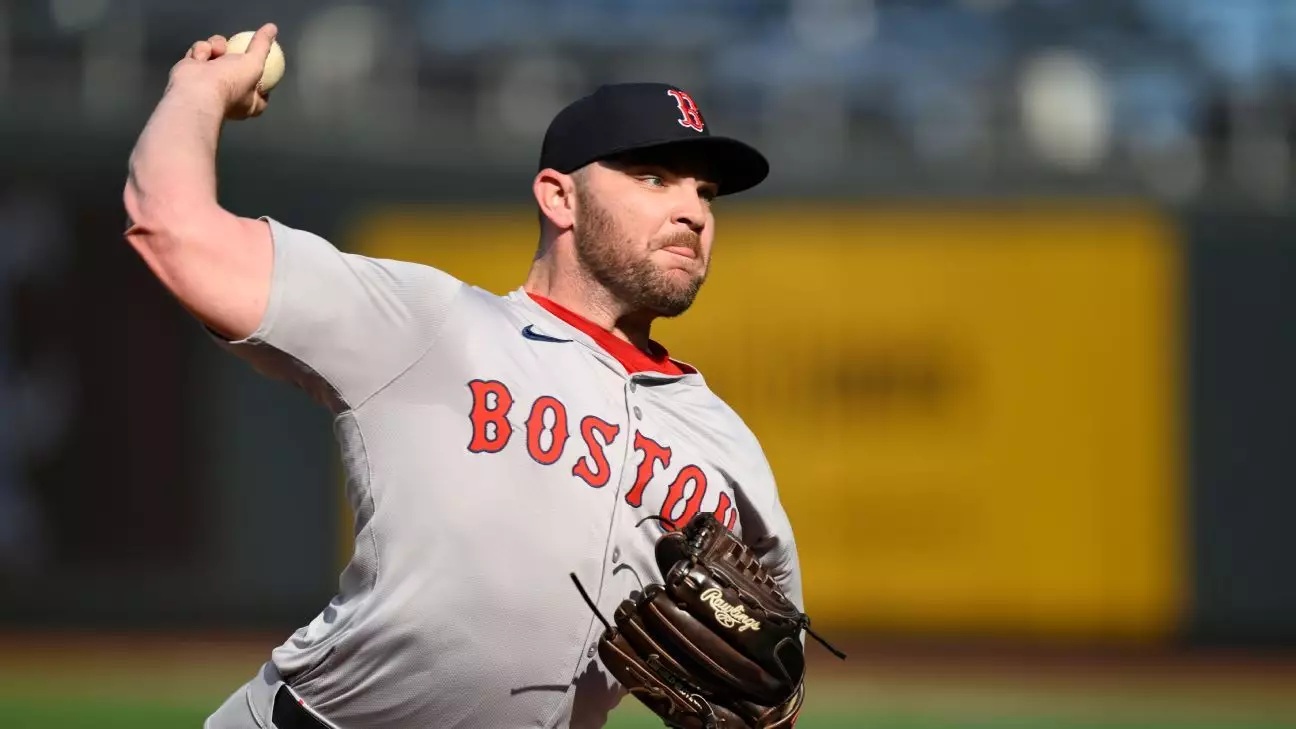The world of professional sports is often marked by jubilant celebrations and overwhelming fan admiration, but it carries with it a darker underbelly. Recently, Boston Red Sox reliever Liam Hendriks found himself at the center of a troubling narrative that underscores the ugly side of fame—death threats against him and his family following a disappointing game against the New York Mets. His candid message on social media—denouncing such abhorrent behavior—serves as a stark reminder of the perilous emotions often tangled with sports. Unfortunately, extreme reactions are not isolated incidents; they are symptomatic of a larger issue that plagues athletes at all levels and realms.
The Role of Reality in Public Perception
As reminded by Red Sox manager Alex Cora, the visibility afforded to athletes means they often become scapegoats for frustrated fans. Cora’s reflection on the prevalence of “real people” and “burner accounts” engaging in malicious online behavior highlights a toxic phenomenon that seems embedded within competitive sports: the conflation of players’ human experiences with the win-loss column. When Hendriks shared his feelings, stating that “enough is enough,” it rang true for not just him, but for countless athletes who find themselves the target of confrontational, aggressive commentary often propelled by anger and desperation. This climate of toxicity transmutes sports from mere games into battlegrounds where athletes must defend their mental well-being against threats that are as real as any opponent on the field.
The Reality of Health Struggles
Adding layers of complexity to Hendriks’ plight is his fight against non-Hodgkin’s lymphoma, a battle that should garner empathy, not catcalls. Having missed a season due to a severe elbow injury, Hendriks’ narratives are not solely rooted in performance; they weave through his personal health challenges. In this sense, the pressure to perform can be overwhelming, especially when compounded by threats that echo the disregard some fans have for an athlete’s humanity. Cora’s support emphasizes a protective camaraderie among players—essential in an environment that sometimes prioritizes entertainment over well-being. As conversations around mental health in sports evolve, it’s crucial to recognize the holistic pressures athletes face, making their well-deserved recognition a dual-edged sword.
Social Media: A Double-Edged Sword
With Cora himself recently navigating backlash after attending his daughter’s graduation—a family event that sparked unwarranted critique—his stance illustrates the absurdity that can arise from unfiltered social media engagement. The irony lies in the complex relationship athletes share with their followers; while social media can foster deeper connections with fans, it can also amplify negativity and vitriol. Cora’s remarks about the pitfalls of sports gambling intertwining with social media outrage amplify a warning that extends beyond baseball: fans must reflect on the dire consequences of their words. An athlete’s missed call can lead to outrage, leaving players navigating a sea of hostile interactions that have severe implications.
A Culture Shift is Needed
The troubling reality is that this cycle of hostility reflects a broader societal issue: the erosion of compassion in the heat of competition. As athletes, Hendriks and Cora exemplify the challenges of maintaining composure in an era dominated by immediate digital interactions. Public figures are human too, and the boundary must be fortified against threats and harmful commentary. Fans need to remember that athletes’ performances cannot be detached from their reality; they are grappling not only with expectation but emotional turmoil. Hence, it beckons a cultural shift—a movement toward respect and understanding, rather than dehumanization.
In a world that often feels divided and despairing, the case of Liam Hendriks compels a vital conversation on the ethics of engagement in sports, shining a light on the need for accountability in how fans express their frustrations. If sports are to uplift and inspire, it’s time for us to confront not just our players but ourselves, ensuring that our admiration does not cross the line into danger.

